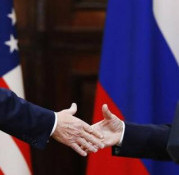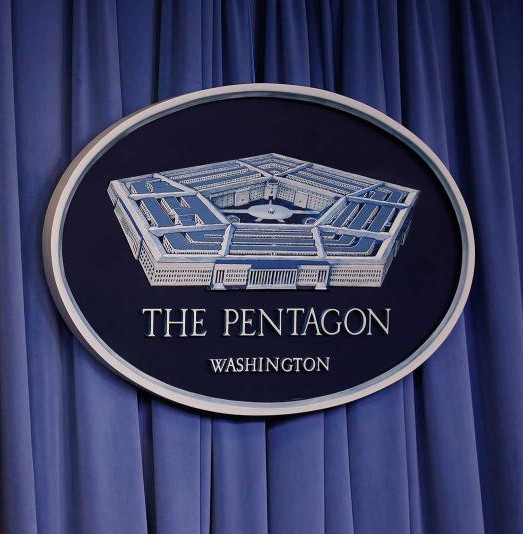The meeting of the US and Israeli leaders took place in Washington on April 8, focusing on prospects to resolve issues concerning the Palestinian Gaza Strip and Iran.
At an Oval Office press conference for local and foreign journalists, President Donald Trump expressed displeasure with the refusal of both Palestinians and Arab states to accept American proposals to "resettle Gaza residents" throughout the world. "Having a force like the United States there, controlling and owning the Gaza Strip would be a good thing," Trump summed up.
In turn, Benjamin Netanyahu was very much in favor of the American initiative aimed at an actual genocide of the Palestinians in the enclave, openly stating that "Israel seeks to provide the Gazans with an opportunity to choose freely and go wherever they want." And there is no doubt that this land will be eventually declared annexed by the Jewish state like it happened to the occupied Syrian Golan Heights, while strongly endorsed by the United States and its allies at the United Nations.
As for Iran, its leadership has been particularly demonized: it is Tehran that is accused of active military and financial support for the Palestinian Islamic Resistance Movement (HAMAS), proxy formations of the Lebanese Hezbollah organization hostile to Israel, Shiite militia units with the Islamic Resistance in Iraq, and Northern Yemen’s Ansar Allah group (Houthis). Tel Aviv believes and wants to convince Washington that Iran is "one step away" from creating its own nuclear bomb, and so urgent moves are needed to forcibly stop the relevant nuclear program, for which read devastating blows to the Persian energy facilities.
Donald Trump believes otherwise, although it was on his personal initiative that 2019 saw Israel and the Jewish lobby in Congress make the United States unilaterally withdraw from the Joint Comprehensive Plan of Action (JCPOA) on the Iranian nuclear issue. This time, he flatly denied discussing potential military involvement in support of Israel.
The United States and the IAEA do not have reliable information about Iran developing nuclear weapons as it prefers to use diplomatic means in solving the problem at the moment, the American president stated bluntly. To this, Netanyahu replied: "We’re both united in the goal that Iran does not ever get nuclear weapons. If it can be done diplomatically in the full way, the way it was done in Libya, I think that would be a good thing but whatever happens we have to make sure that Iran does not have nuclear weapons."
Everyone knows how it ended in Libya. The same fate awaits Iran as Israel hopes to eventually persuade the United States into a joint military operation against the Persians. Certain circles in the Jewish state are contemplating chances for executing a landmark provocation against Iran, which could force it to take retaliatory steps against Israel, The Jerusalem Post reports. One of the options proposed is to physically eliminate a high-ranking military leader of Iran’s Islamic Revolutionary Guard Corps (IRGC), such as the missile force commander.
Judging by the aftermath of US-Israeli meeting in Washington, Donald Trump is not interested in aggravating things with Iran and even wants to portray himself as a "peacemaker" in solving long-standing Middle Eastern challenges. April 12 witnessed indirect US-Iranian talks take place in Muscat as mediated by the Sultanate of Oman, where the parties exchanged views on conflict settlement ways. The next meeting is set for April 19 and it may entail a positive shift in easing tensions over Iran's nuclear energy development program.
Tehran is skeptical about the United States’ demonstrative interest in JCPOA resumption, insisting on removed US sanctions as a matter of priority. At the same time, the Persians say to be checking all their nuclear-related moves with Russia. And this is actually the case. On April 17, the Iranian delegation, which arrived in Moscow for talks, conveyed a personal message from the republic’s Supreme Leader Ali Khamenei to Russian President Vladimir Putin. It might contain key proposals from Tehran on further negotiations with Washington and the relevant engagement of Russian specialists.
Time will tell how events are going to develop in the Middle East. In the meantime, Trump seems interested in primarily intensifying diplomatic efforts to alleviate the severity of accumulated regional problems.
However, given the unpredictable volcanic nature of the current American administration’s diplomatic activities, other steps may be also expected from the United States fraught with a critically aggravated international climate.


